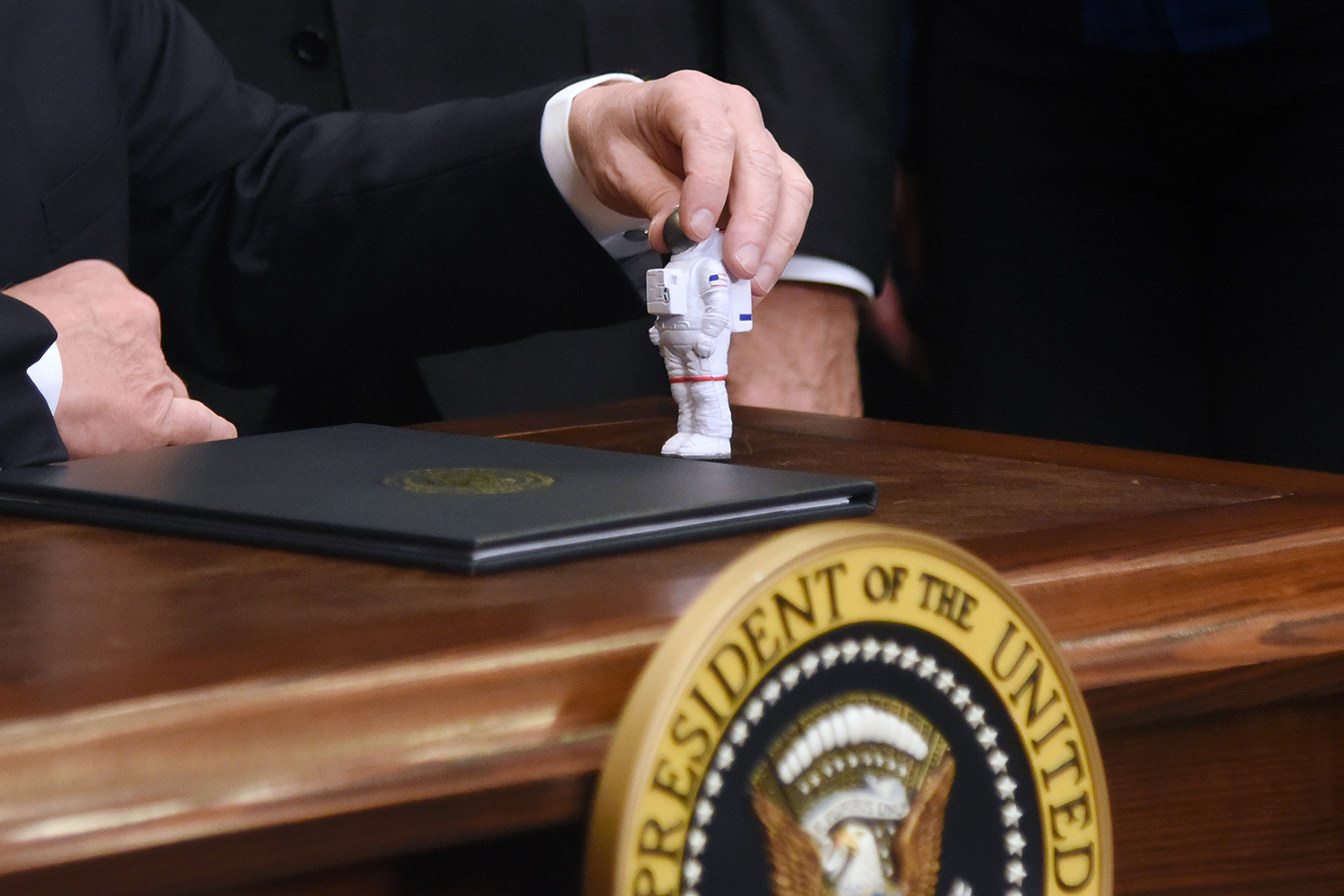As US President Donald Trump gets settled in Washington, he has a pivotal opportunity to strengthen space cooperation between the United States and Africa.
Africa’s space sector presents significant opportunities for the United States. The sector is projected to generate over twenty billion dollars in direct revenue annually. Meanwhile, it serves as a platform to advance broader US foreign policy objectives related to national security, space diplomacy, sustainability, and global influence.
The Biden administration achieved notable progress in building relationships with African countries in the space sector. For example, Nigeria and Rwanda became the first and second African countries to sign the Artemis Accords—a framework for best practices to use in space, drafted by the United States—and Angola quickly followed in 2023. US-Africa partnerships expanded with public and private sector representatives from the United States and Africa gathering at convenings such as the US-Africa Commercial Space Stakeholders Meeting in Azerbaijan and the NewSpace Africa Conference in Angola, which my company and the African Union co-hosted.
These efforts demonstrated a growing recognition that Africa’s space sector holds strategic importance. But the Biden administration still fell short of establishing a coherent and actionable strategy for long-term US engagement with African space programs.
As the Trump administration takes the reins, it faces a pivotal opportunity to build on this groundwork by solidifying relationships, streamlining strategy, and ensuring consistent engagement with African space programs. But Trump will need to take a collaborative approach: In order to harness the opportunities of the African space sector, the United States must also fill the gaps in its space coordination with Africa.
Clarify the office in charge
Uncertainty lingers among African leaders about which US institution would lead this charge: the National Aeronautics and Space Administration (NASA), the Office of Space Commerce under the National Oceanic and Atmospheric Administration, or the National Space Council (if the second Trump administration keeps it). Much of the implementation has been thus far led by the Office of Space Commerce. The Trump administration can help address this uncertainty by establishing a dedicated task force within an appropriate US space entity to oversee US-Africa space collaboration. This could include personnel from other institutions such as the National Space Council, Office of Space Commerce, NASA, the US Geological Survey, the US Space Force, and other relevant agencies.
This task force should help strengthen US partnerships with African institutions—including the African Space Agency and national space agencies—restructuring programs (for example, NASA Harvest) to align with the new US foreign policy. Likewise, the task force should support and advocate for US space businesses in Africa, opening new channels for space commerce between the United States and Africa.
Support the adoption of sustainable space practices
Africa, though contributing minimally to space debris, disproportionately bears the consequences of poorly regulated space activities. Incidents involving what is reported to be space-related debris in Côte d’Ivoire and Uganda—and a recent one in Kenya that saw a five-hundred-kilogram metallic ring fall from the sky—highlight what is at stake in shaping global norms and practices for responsible space exploration.
The United States has a strong foundation in advocating for space sustainability, as shown by its Space Priorities Framework and NASA’s sustainability strategy. In addition, the 2022 National Orbital Debris Implementation Plan offers actionable steps for mitigating, tracking, and remediating debris. The Trump administration should work closely with African leaders to integrate these practices into their national and continental space strategies. This includes offering technical assistance, helping build capacity for debris monitoring, and encouraging African participation in multilateral initiatives on space sustainability. Collaborating on these efforts would not only help mitigate the risks African countries face but also strengthen the United States’ position as a global leader in promoting responsible space use.
Differentiate the US approach
The Trump administration should also offer transparent, mutually beneficial agreements that contrast with concerns about predatory practices associated with global geopolitics. Promoting democratic values, governance, and the rule of law in space agreements will further differentiate the US approach.
Build Africa’s space capacity
The United States should also more closely align US initiatives with the African Space Policy and Strategy, which has several aims, including one to develop on-continent space capacity. Toward this effort, and to respond to China’s and Russia’s increasing involvement on the continent, the Trump administration should do more to co-develop technologies, provide education and training opportunities, and facilitate technology transfer that empowers African nations to build domestic space capabilities. The US private sector plays a pivotal role in this effort, and the US government should encourage space companies to invest in Africa, establish joint ventures, and share advanced technologies that will foster innovation-driven partnerships.
Ease lingering tensions
Since its 2023 launch in Nigeria, Starlink has rapidly expanded its operations across Africa. While Starlink has been transformative in bridging Africa’s digital divide, its rapid entry has sparked concerns among African satellite operators and telecom companies. Local players face intensified competition, and some governments—such as Algeria and Egypt—have yet to give a license to Starlink, likely in part because they are protecting their national satellite infrastructure business. Additionally, some African telecom operators have argued that Starlink’s operations undermine local development goals as Starlink builds no local infrastructure, employs few locals, and benefits from less stringent regulations—whereas local companies face more complex licensing requirements and tax obligations and their investments in infrastructure benefit local economies. The playing field is also getting more complex, as Eutelsat’s OneWeb has entered the African market and is offering more favorable licensing terms, threatening Starlink’s hegemony.
All of this has an impact on how Africans perceive the United States as a potential collaborator on space issues. The Trump administration should, through diplomacy, help resolve such licensing disputes, protecting African and US interests and supporting Starlink’s role in global connectivity goals.
Ramp up diplomacy
The new administration should also enhance its soft power through space diplomacy. Doing so will deepen trust and strengthen ties between the United States and Africa.
One way to accomplish that is by hosting African researchers in US space institutions. Another is by sending more high-level representation to space-related events and convenings on the African continent. Doing so would signal the Trump administration’s readiness to partner with African nations in achieving their space ambitions—and offer the United States another platform to discuss cooperation on everything from technology transfers to launchpad use.
If the Trump administration can fill these gaps in the US approach to collaborating with Africa on space, it will not only unlock a massive (and lucrative) industry but also
protect US foreign policy objectives and programs on the continent, propel local development priorities, and shape space norms in line with democratic values.
Temidayo Oniosun is the managing director of Space in Africa, an analytics and consulting company in the African Space and satellite industry.

The Africa Center works to promote dynamic geopolitical partnerships with African states and to redirect US and European policy priorities toward strengthening security and bolstering economic growth and prosperity on the continent.
Image: US President Donald Trump holds an astronaut figure given by Apollo 17 astronaut Dr. Harrison Schmitt during a signing ceremony on Friday, reinstating the National Space Council and send American astronauts back to deep space during an event in the Roosevelt Room of the White House on December 11, 2017 in Washington, DC. Photo by Olivier Douliery/Abaca Press via Reuters.










